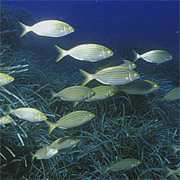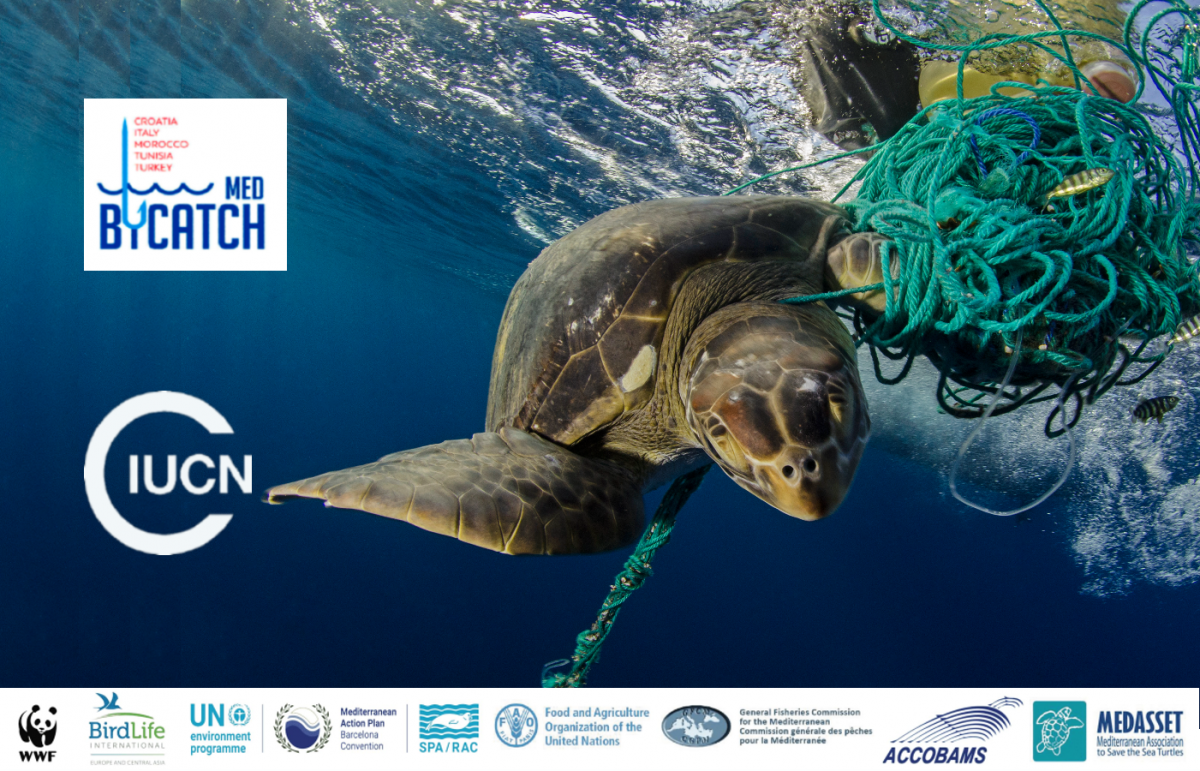Land reform for the seas
Berlin conference on marine protected areas in European waters and high seas calls for better management of the world's oceans

Photo: José Antonio Moya
Europe should lead worldwide efforts to protect the oceans to prevent collapse of commercial fisheries by 2050. With three-quarters of the world's fish stocks already fully exploited or depleted, the oceans urgently need better regulation of fishing and other commercial activities. This was the main message of the conference "Countdown 2010 for Marine Ecosystems", closing today in Berlin.
Around 100 high-level experts from European member states, UN organizations and regional conventions agreed on the message "Countdown 2010 for Marine Ecosystems", emphasizing the importance of the European Union in improving the conservation and sustainable use of marine biodiversity.
"We can learn a lot from lessons of landscape management," says Carl Gustaf Lundin, Head of the IUCN Global Marine Programme. "If we restrict trawling and other destructive activities to certain areas, this will give marine habitats a chance to recover."
Marine protected areas, currently covering less than 1% of the world's oceans, have been proven to boost fish stocks; five years after the creation of marine reserves in the Egyptian Red Sea, fish catches in neighbouring areas increased by 66%.
"In the coming year, the EU Maritime Policy will determine the future of our oceans," explains Tamás Marghescu, IUCN Regional Director for Europe. "We need to put the environment at the centre to safeguard our marine resources and their major contribution to people's income and national economies."
On a European level, Natura 2000 sites provide an effective mechanism to create marine protected areas. In the high seas, the Berlin conference recommends a UN-based implementing agreement to protect vulnerable ecosystems.
The conference was organized by the World Conservation Union (IUCN) and the German EU Presidency. It built on the IUCN Marine Protected Areas Summit in Washington D.C. earlier this month in which experts called for 30% of marine areas to be protected.
European governments have promised to halt the loss of biological diversity on land and in the seas by 2010. Governments worldwide have committed to create a global network of marine protected areas by 2012. The initiative Countdown 2010 - hosted by the World Conservation Union (IUCN) - supports these and other ambitious conservation targets in collaboration with governments and civil society.
*ENDS*
Notes to Editors
The conference website:
www.countdown2010.net/marine
IUCN website on marine issues:
Marine
Countdown 2010 is a powerful network of active partners working together towards the 2010 biodiversity target. Each partner commits additional efforts to tackle the causes of biodiversity loss.
Countdown 2010 website:
www.countdown2010.org
German Federal Ministry for the Environment:
http://www.bmu.de/english/nature/current/aktuell/3836.php
http://www.bmu.de/english/water_management/current/aktuell/3868.php
German Federal Agency for Nature Conservation:
http://www.bfn.de/ and
http://www.habitatmare.de/
EU Marine Policies:
http://ec.europa.eu/environment/water/marine/index_en.htm and http://ec.europa.eu/maritimeaffairs/policy_en.htm
For more information in German and English or to set up interviews, please contact:
Wiebke Herding, Communications Officer, Countdown 2010, IUCN Europe Office
Tel: +32 2 739 0321, mobile: +49 177 2409042, wiebke.herding@countdown2010.netTim Christophersen, European Programme Coordinator, IUCN Europe Office
Tel: +32 2 739 3007, mobile: +32 473 863 608, tim.christophersen@iucn.org
Marine Policies
“High Seas” or oceans beyond national jurisdiction are usually defined by what they are not. The high seas are all parts of the sea that are not included in the exclusive economic zone (EEZ). Generally a state's EEZ extends to a distance of 200 nautical miles (370 km) out from its coast.
Facts about Marine Biodiversity
Oceans cover about 70% of the planet’s surface and hold an abundance of biodiversity with marine and coastal environments being home to 97% of all species on earth. Oceans, marine ecosystems and their biodiversity are vital for life on earth. They play a key role in global nutrient recycling and climate regulation and provide humans with a wide range of resources and services.
Globally, life in our seas produces one third of the oxygen we breathe and human consumption of fish makes up 16% of our animal protein supply and is particularly important as a protein source for populations in developing countries. In 2002, the global fish catch reached about 90 million tonnes and aquaculture contributed with another 40 million tonnes. Three quarters of this production were used for human consumption, the rest for animal feed and thus, to a large extent, ultimately for human consumption.
The World Conservation Union (IUCN)
Created in 1948, the World Conservation Union (IUCN) brings together 83 States, 110 government agencies, 800 plus NGOs, and some 10,000 scientists and experts from 181 countries in a unique worldwide partnership. The Union’s mission is to influence, encourage and assist societies throughout the world to conserve the integrity and diversity of nature and to ensure that any use of natural resources is equitable and ecologically sustainable.
The Union is the world's largest environmental knowledge network and has helped over 75 countries to prepare and implement national conservation and biodiversity strategies. The Union is a multicultural, multilingual organization with 1,000 staff located in 62 countries. Its headquarters are in Gland, Switzerland.
More information can be found at www.iucn.org



